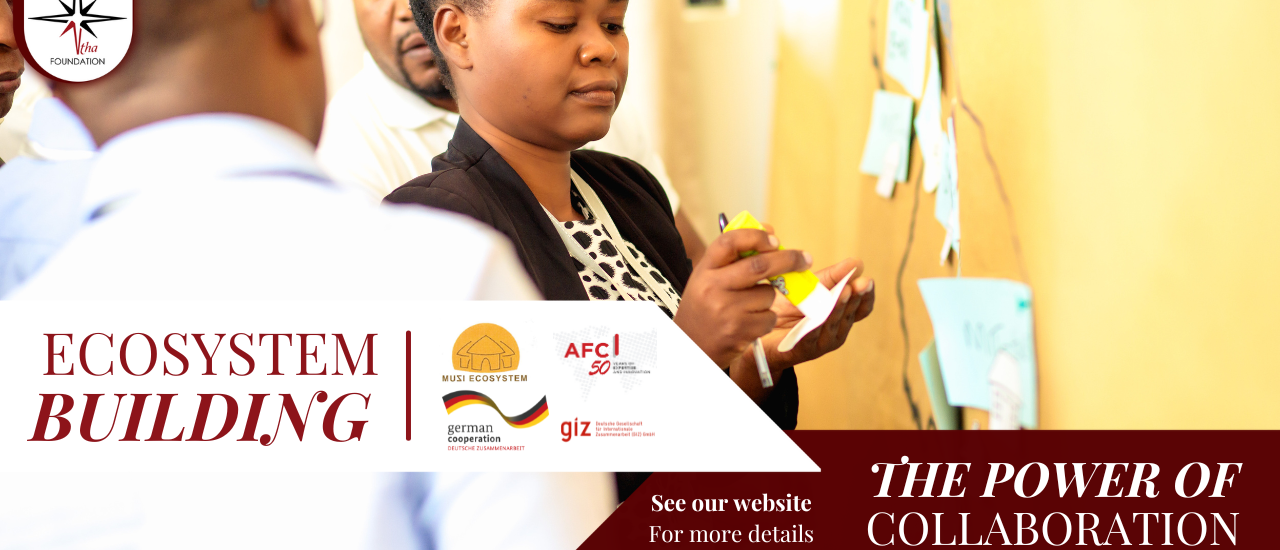A few weeks ago, the Ntha Foundation executive team was invited by the German Development Cooperation (GDC), Deutsche Gesellschaft für Internationale Zusammenarbeit (GIZ) GmbH and the Agriculture and Finance Consultants (AFC) GmbH working under the More Income and Employment in Rural Areas (MIERA II) Project, to the Launch of the Muzi Ecosystem Initiative. The launch got our team thinking about the power of collaboration and ecosystem building.



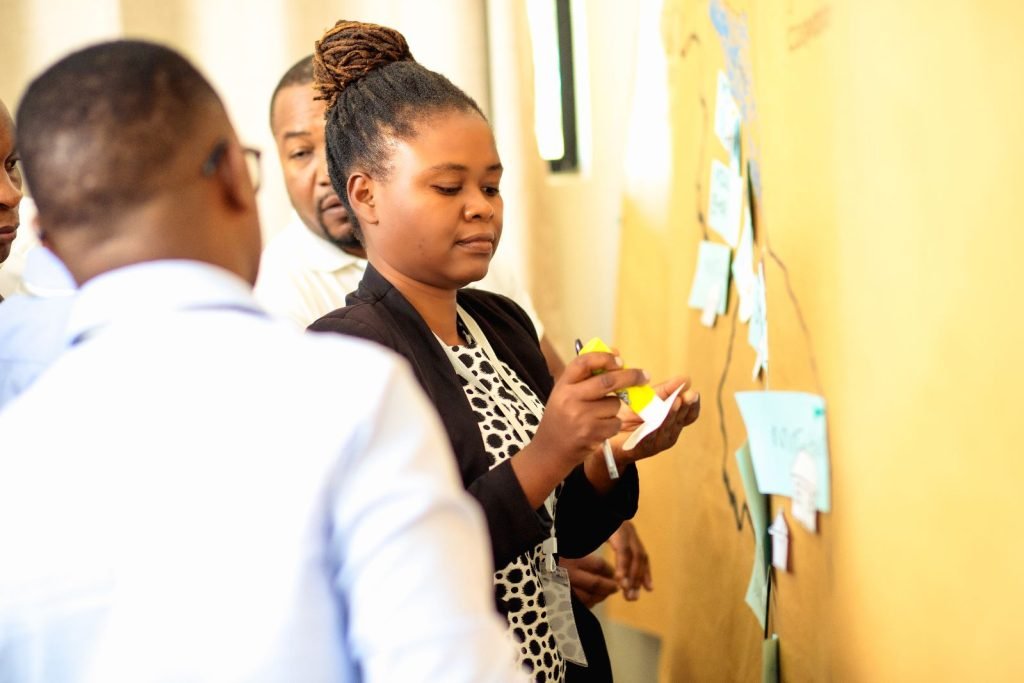
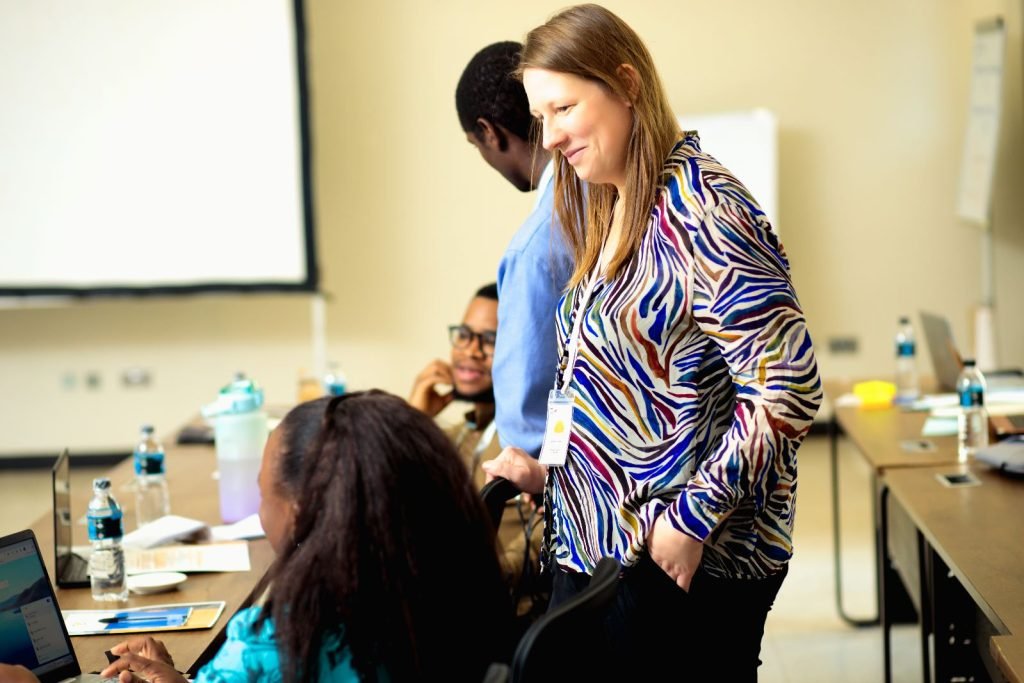
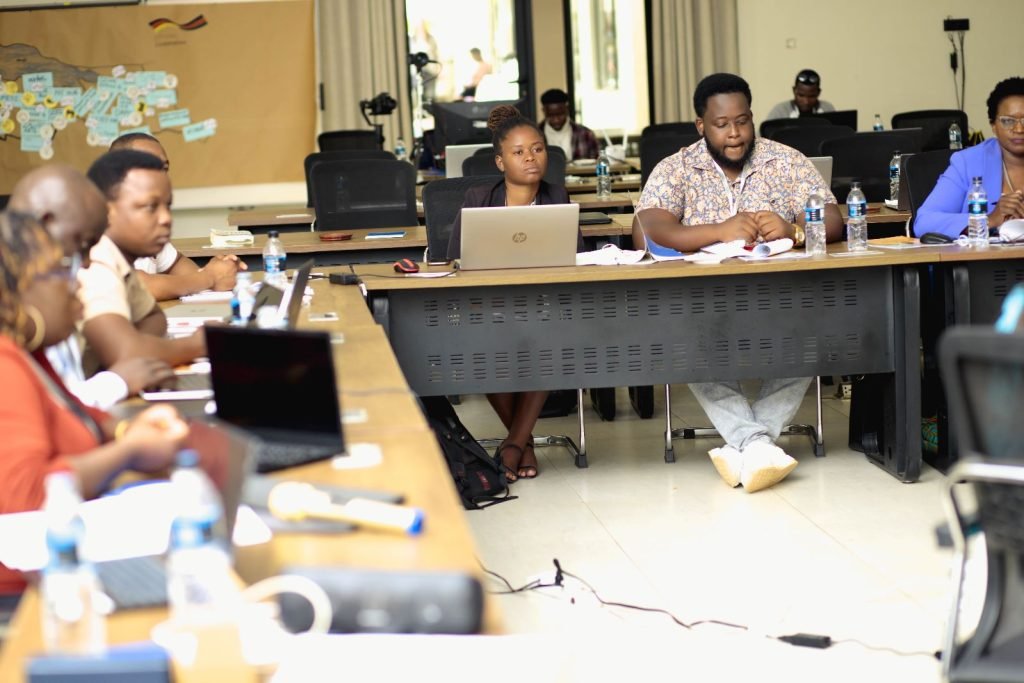
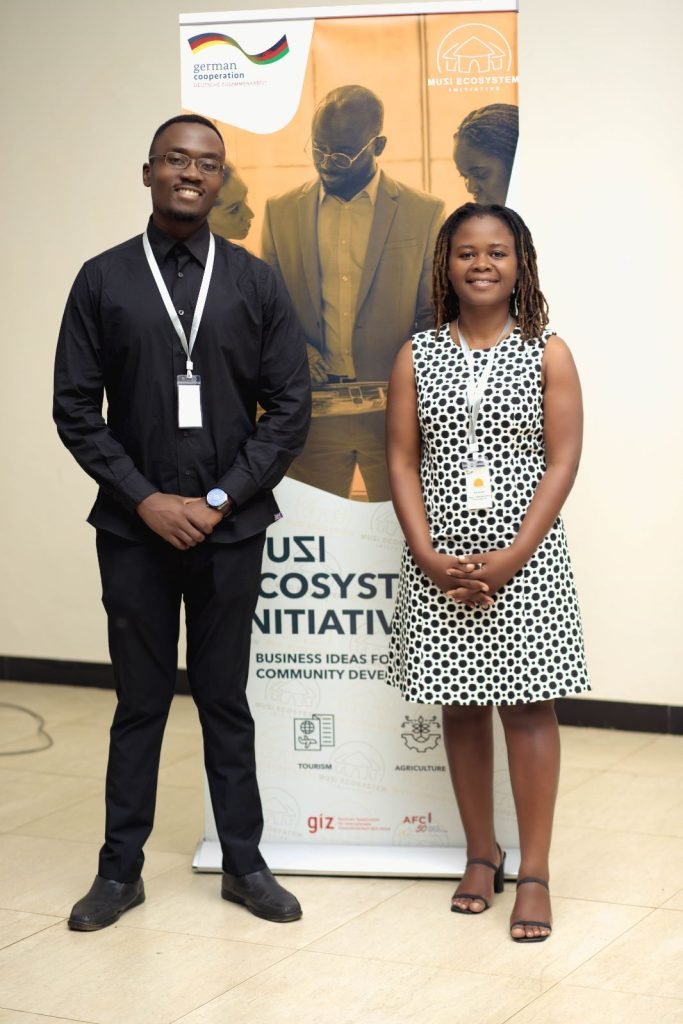
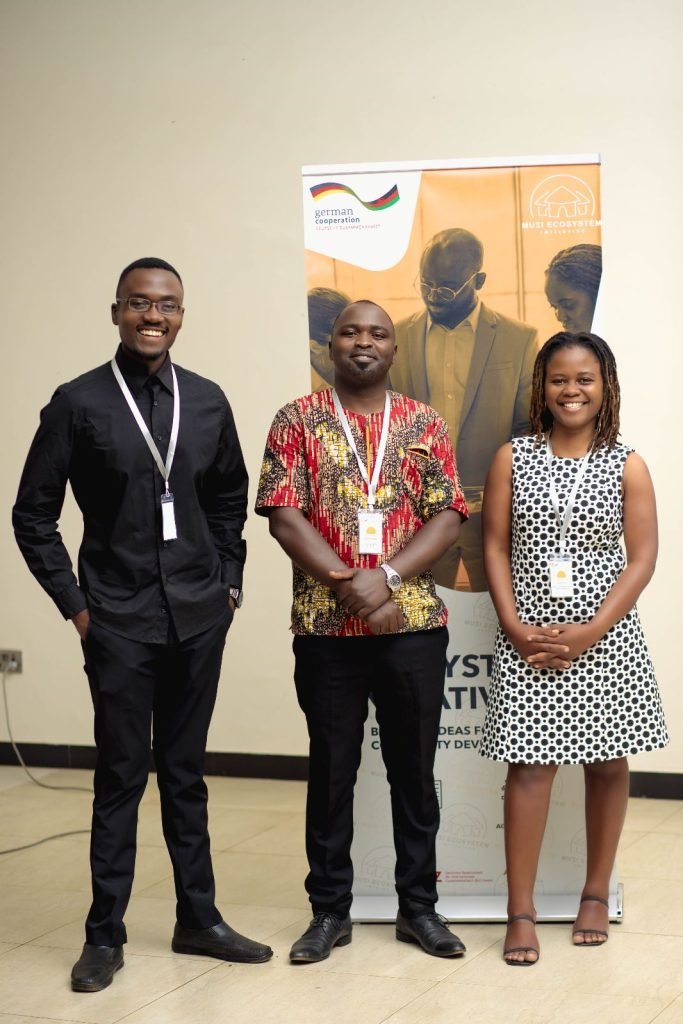
Our Executive Team at the Muzi Ecosystem Launch Event
Ecosystem building refers to the process of creating and nurturing a network of interconnected organizations, individuals, resources, and institutions that collaborate and contribute to a specific goal or purpose. It’s often associated with fostering innovation, entrepreneurship, economic growth, and community development.
If you’re interested in ecosystem building, here are some key aspects to consider:
- Shared Vision and Goals: An ecosystem is built around a shared vision or common goals. This vision can be related to a specific industry, technology, community development, or social impact. It’s important to clearly define the purpose and objectives of the ecosystem to ensure that all participants are aligned.
- Diverse Stakeholders: Ecosystems thrive on diversity. They bring together various stakeholders such as startups, established companies, investors, educational institutions, government bodies, non-profits, and more. The diversity of perspectives and expertise contributes to a vibrant and well-rounded ecosystem.
- Collaboration: Collaboration is a fundamental principle of ecosystem building. Encouraging collaboration among different stakeholders can lead to the sharing of knowledge, resources, and opportunities. This collaboration can take the form of partnerships, joint ventures, mentorship programs, and co-working spaces.
- Networking and Connectivity: Ecosystems provide opportunities for stakeholders to connect with each other. Networking events, workshops, seminars, and conferences create spaces for people to share ideas, build relationships, and explore potential collaborations.
- Resource Sharing: Ecosystems often involve the sharing of resources, whether it’s physical resources like office space and equipment, or intangible resources like knowledge and expertise. Resource sharing can reduce costs, increase efficiency, and accelerate innovation.
- Support Services: Providing support services to ecosystem participants is crucial. This can include mentoring, coaching, access to funding, legal advice, marketing support, and more. Supporting startups and entrepreneurs can help them overcome challenges and scale their ventures.
- Innovation and Creativity: Ecosystems foster innovation by bringing together individuals with diverse skills and perspectives. The cross-pollination of ideas and expertise can lead to the development of novel solutions and products.
- Policy and Regulation: Government agencies play a role in ecosystem building by creating conducive policies and regulations. Favorable policies related to business registration, taxation, intellectual property, and funding can significantly impact the success of an ecosystem.
- Measuring Impact: It’s important to measure the impact of the ecosystem. This can include metrics like the number of startups launched, jobs created, investments attracted, and successful collaborations. Regular assessment helps identify areas for improvement.
- Adaptation and Flexibility: Ecosystems are dynamic and ever-evolving. They should be adaptable to changing market conditions, technologies, and stakeholder needs. Ecosystem leaders should be open to feedback and willing to make necessary adjustments.
- Communication and Awareness: Effective communication is essential to keep all ecosystem participants informed about events, opportunities, and developments. Utilize social media, newsletters, and other channels to maintain an active flow of information.
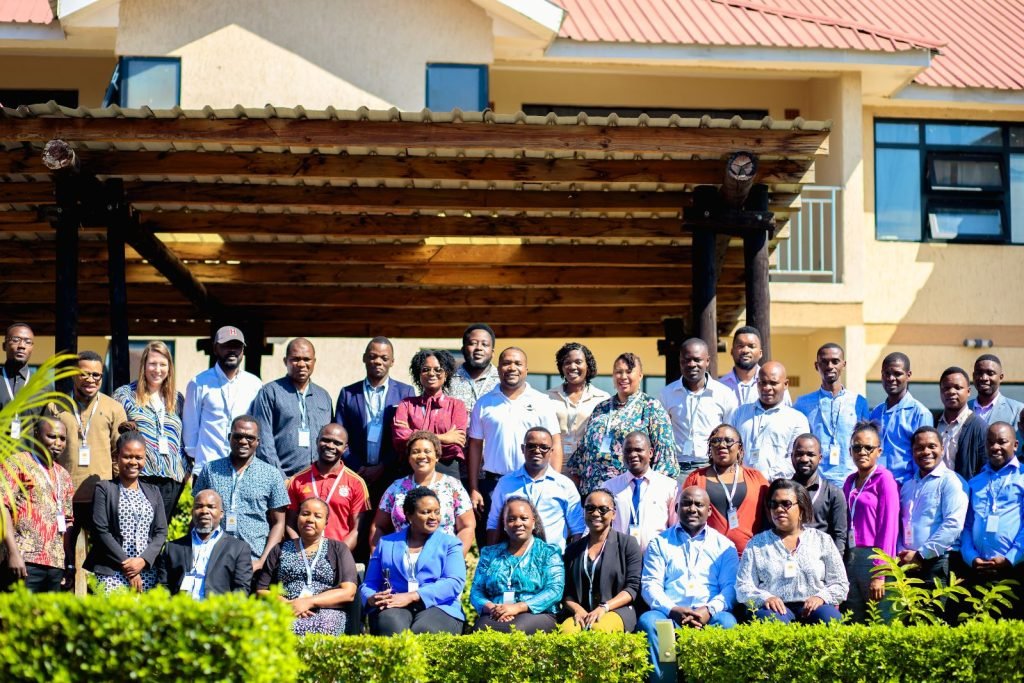
Remember that ecosystem building takes time and effort. It requires a dedicated team, a supportive community, and a commitment to the shared vision. By fostering collaboration and innovation, ecosystem building can drive economic growth, support social impact initiatives, and contribute to the overall well-being of a region or industry.
To keep up with the work of the Ntha Foundation, the Kwathu Innovation & Creative Centre, our initiatives and projects, follow our social media pages:


